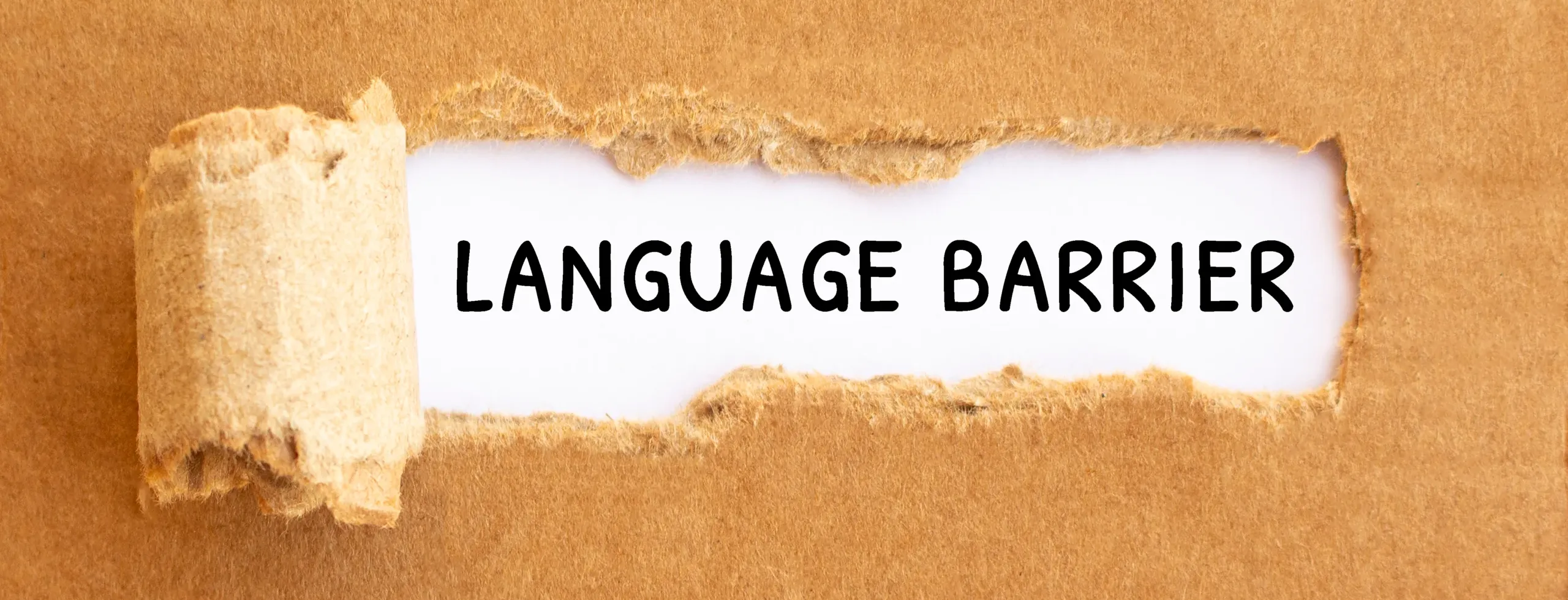By Katie Reed | July 25, 2023 | Blog

Recent figures from the Office for National Statistics (ONS) show a rise in non-English speakers in the UK. With this trend set to continue over the next 25 years, language support will become an even more important part of healthcare, as services work to ensure those lacking sufficient knowledge of English can still access and understand the treatments and support available to them.
With this in mind we have looked at the language barriers to healthcare and consequences for patients, along with the role that healthcare translation can play to help to break down these barriers.
For non-English speakers it can be a daunting prospect to navigate the swathes of written information involved in the UK healthcare system. This includes anything from simple leaflets and practical medical materials through to long complicated forms, much of which will involve having an understanding of complex medical terms.
It is more than just a bit of a challenge, language barriers can have serious medical implications. Providing effective patient communication can reduce confusion amongst both patients and their relatives, encouraging them to come forward to request healthcare when they need it.
On a large scale, this becomes even more important. During the pandemic, communication of vital health information to the population in general and non-English speakers in particular became a hot topic. Raising vaccine awareness and addressing the concerns of the populace was key to stopping the spread of Covid. Providing this information in native languages had an enormous role to play, particularly in terms of building trust in healthcare services and reducing mis-information at a time when we were dealing with the unknown.
Current NHS guidance says *patients should be provided with written information about health services, such as leaflets, in a language and format that they understand. High-quality translations provided by a trained translator should be available and online tools, such as Google Translate, should not be relied on for translation in healthcare settings, as they may result in inaccurate or misleading communications between staff and service users. *Healthwatch
What does this mean in practice? Take the example of sending out patient communication and appointment letters. If this is done in a patient’s native language it can avoid the risk of delayed diagnosis and subsequent healthcare, an issue highlighted in a recent report from the Healthcare Safety Investigation Branch (HSIB). Accurately translated medical information also reduces the burden on relatives or other community members who may not be familiar with the relevant medical terms.
Our team of mother-tongue linguists and expert Project Managers have extensive experience of working with NHS trusts and Clinical Commissioning Groups around the UK. We understand the importance of accuracy and specialist knowledge of complex medical terms to ensure patient communications are translated correctly, enabling you to engage with and educate your patients.
Contact our team to discuss how we can help with your next healthcare translation project.
Get insights, information and offers from The Language Factory.